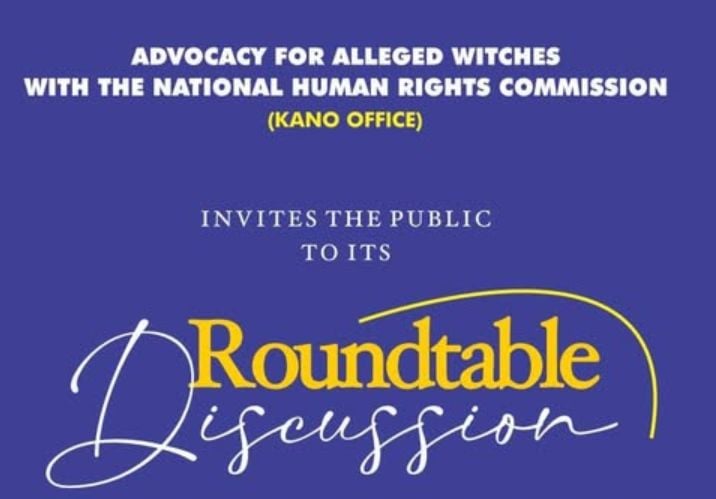The convention of the first roundtable discussion on witch hunts and human rights violations in Kano is a commendable development because it indicates some progress in addressing human rights abuses that are too long forgotten and too long ignored. It is an opportunity to review a wild phenomenon that Western anthropologists misunderstood and misrepresented. Witch hunting is a manifestation that has been mischaracterized as valuable in functioning and stabilizing African societies in post-colonial dispensation. Incidentally this is not the case.
Kano is one of those places where witchcraft accusations and suspicions rage like wildfire. As in other parts of the country, the accused usually resign to their fate. They seldom seek redress in courts or hold their accusers accountable or responsible. Witchcraft accusation wreaks havoc in the lives of innocent people. Nigeria is one of those countries where witch hunting is pervasive despite existing mechanisms to combat the abuse. Africa is one place in the world where suspected witches are still banished, beaten to death or buried alive with impunity. This unfortunate situation in the region needs to change.
Africa needs to join the rest of the world in making witch hunting history. Africans need to reorient their minds and end the trial and persecution of alleged witches. Unfortunately, Africans are far from realizing this goal because abuses linked to witchcraft beliefs and ritual attacks run rampant in families and communities. The superstition that people can harm others through magical or supernatural means remains strong. The educational system has not succeeded in weakening the grip of this mistaken idea on people’s minds.
People abuse alleged witches, or turn a blind eye to the violations, because they believe. They believe that the accused are or could be guilty as charged. Those who think otherwise are reluctant to act or intervene on behalf of the accused. In making sense of their everyday problems and challenges, most people readily appeal or invoke supernatural agencies; they leap into the imaginary world, the transcendental realm. They mobilize occult fears and anxieties, resulting in anarchy, anomie, and mayhem. The magical leap trumps everything, including their sense of humanity, human rights, decency, reason, common sense, and civilization.
So children accuse and abuse their parents. Parents accuse and abuse their children. Relatives accuse relatives. Neighbours suspect and attack neighbours. Families and communities turn against alleged witches. In the markets, and offices, in cities and urban areas, witchcraft accusations and witch hunts persist with force and ferocity. The dark and destructive consequences of witch hunts are evident.
In line with the theme of this year’s World Day Against Witch Hunts: Remembering Victims of Witch Hunts, Past and Present, this program offers an opportunity to recall failures and missteps that have yielded and sustained this menace. It provides a space to stress our duty and obligation to combat this vicious phenomenon right here and right now. First, it is pertinent to remember that belief does not justify abuse. Too often, witchcraft accusers and witch hunters think that belief legitimizes the persecution of alleged witches. It does not. While humans have the right to believe, they must be held responsible for actions and beliefs. And witchcraft beliefs often motivate people to commit atrocities. And these atrocities are not excusable or justifiable based on beliefs.
That one believes a person is a witch does not suffice; it does not make a person a witch, even when the person is beaten or coerced to confess or admit. Belief is not a proof. We must remember that witchcraft is a form of superstition; it is a belief based on fear and ignorance, on mistaken ideas of nature and how nature works. Also, witchcraft accusation is a crime under the law. Section 210 of the Criminal Code Act prohibits witchcraft accusations. It is against the law to accuse someone of witchcraft. Those convicted could be fined and, or imprisoned.
Witchcraft trials constitute a miscarriage of justice. Victims of witch hunts are innocent people unjustly accused and unjustly treated. Those who have passed away should be memorialized and honoured, while survivors and their families should be compensated. The Advocacy for Alleged Witches looks forward to working with the office of the National Human Rights Commission in Kano and in other parts of the nation in ending abuses linked to witchcraft beliefs and ritual attacks. Leo Igwe directs the Advocacy for Alleged Witches.


